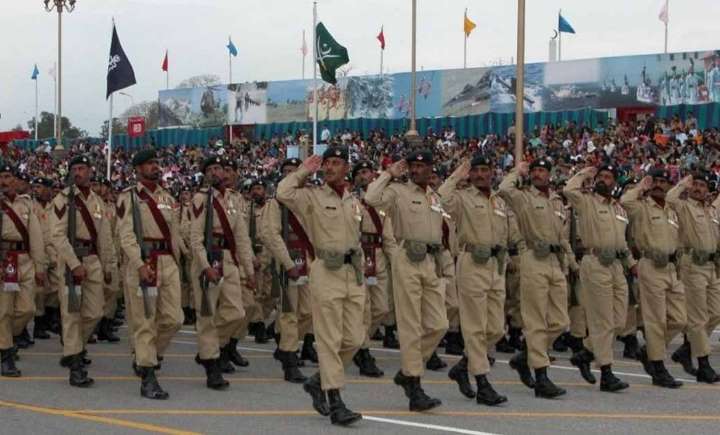

The Pakistan Army (Photo: IANS)
The Pakistani cabinet led by Prime Minister Shehbaz Sharif has approved the deployment of the Pakistani Army in Balochistan in view of the deteriorating security situation in the country’s south-west province. This is the first time that Pakistan has formally acknowledged the deployment of the army in the war-torn province that seeks independence from Pakistan.
The cabinet also approved sending Rangers, the paramilitary force that had illegally arrested former prime minister Imran Khan, to the vital Punjab province.
The additional movement of armed forces to Balochistan, which is in the throes of a full-fledged conflict, has raised fears among the poverty-stricken community about increase in human rights abuse and “enforced disappearances” under the watch of the Pakistani army. A Baloch analyst told India Narrative that such massive military deployment indicates that there will be an acceleration in the genocide of the ethnic Baloch community.
The Baloch have already started appealing to the global community including the UN to save them from the “oncoming onslaught”.
Geopolitical analyst Mark Kinra says: “Balochistan has always seen army operations but with the army coming officially, it means the security situation has really deteriorated. I think one of the major reasons for enhanced army deployment is the attack on Pakistani Army installations”.
The Baloch analyst said that the decision to deploy the army publicly might have its roots in Pakistani Chief of Army Staff, Gen. Asim Munir’s visit to China recently where Beijing would have insisted on providing the maximum security to Chinese officials and the strategic China-Pakistan Economic Corridor (CPEC). “With the poor financial situation, Islamabad desperately needs money and by fulfilling a long-pending security demand from China, Pakistan will get the much-needed funds,” says the Baloch analyst.
He added that, “the Pakistani Army has remained stationed in Balochistan since 1948, after it had forcibly occupied the kingdom of Kalat and its adjoining states, now Balochistan. However, this is the first time that an official notification about the army’s presence in this region is being issued”.
The analyst says that another urgent reason to deploy the army in Balochistan could be the ferocious attack on the paramilitary force – the Frontier Corps on May 12 in Muslim Bagh, where more than a dozen people including at least six Pakistani troops were killed. Balochistan is now witnessing heavy attacks on Pakistani soldiers by both – the Pakistan Taliban (Tehreek-e-Taliban Pakistan) and the ethnic Baloch separatists.
Last year, the Baloch Liberation Army (BLA) claimed to have shot down two Pakistani army helicopters, highlighting the intensity of the seven-decade-old conflict. The Pakistani forces have been using fighter jets, Cobra helicopters and surveillance drones besides their ground forces against the Baloch people.
The Pakistani Army is now stretched across the nation – fighting the Pakistan Taliban in the north-west, the Baloch in the south-west and also a small-scale insurgency in the south-east in Sindh. It also remains deployed against India on its eastern borders where it has been sending drugs and weapons through drones to fuel communal tensions in Jammu and Kashmir.
The Pakistani Army has found a new enemy within its borders – the frenzied supporters of Imran Khan, who set alight military stations and ransacked residences of army commanders heaping indignities the army could not have imagined since its surrender to the Indian Army in the 1971 war.
Prime Minister Narendra Modi interacted with members of the Indian diaspora here on Wednesday as…
The city of Hamburg in Germany is set to host the 11th edition of India…
The International Atomic Energy Agency (IAEA) has confirmed that two Iranian centrifuge production facilities, TESA…
The human rights department of the Baloch National Movement (BNM), Paank, has strongly condemned the…
In a major boost to India's coastal defence capabilities, the Indian Navy on Wednesday commissioned…
Volker Turk, the UN High Commissioner for Human Rights, on June 17 expressed concern over…